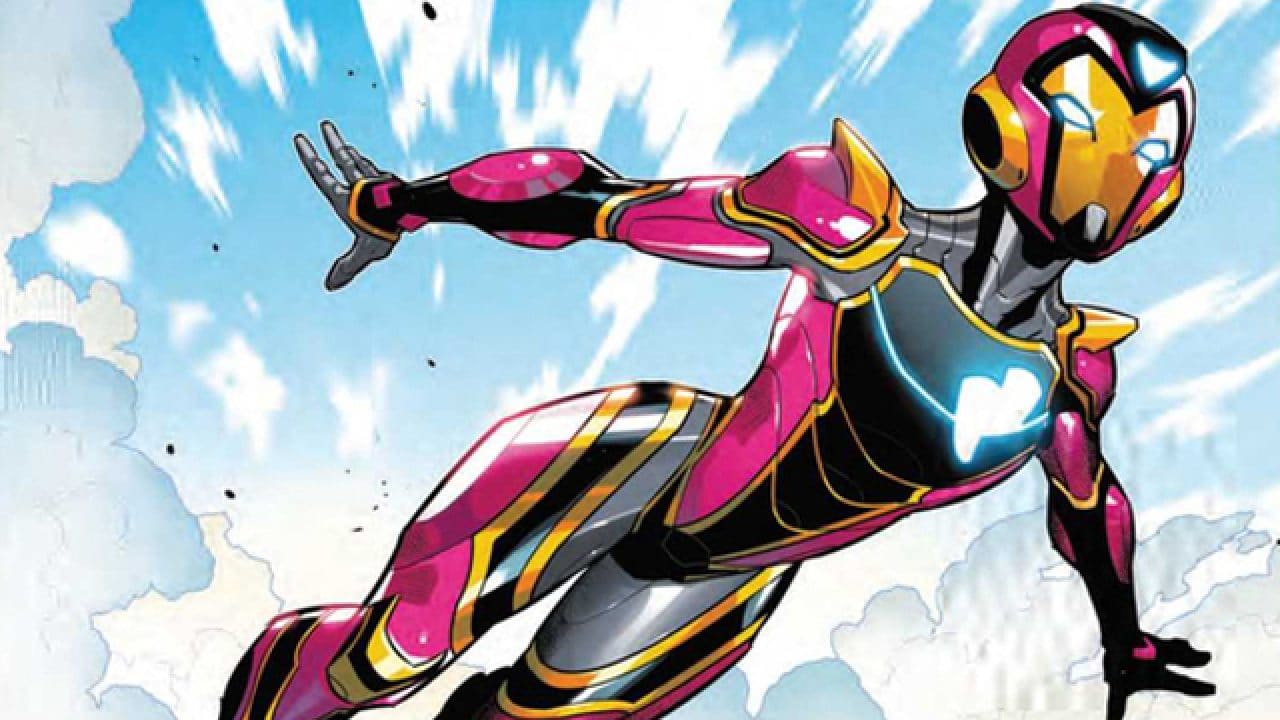Author: Andrew J Hewitt, APRN-BC
Abstract
Marvel’s Riri Williams—known as Ironheart—is a teenage engineering prodigy whose journey is marked by trauma, responsibility, and ethical complexity. This clinical paper applies a mental health framework grounded in DSM-5 constructs to examine her motivations, emotional regulation, and resilience. Drawing on recent portrayals in the MCU and comic canon, it offers insight into how grief, guilt, and identity formation shape her trajectory, emphasizing implications for mental health professionals.
Introduction
Riri Williams, a young Black genius from Chicago, steps into the mantle of heroism following the death of her loved ones and her early admission to MIT. As Ironheart, she juggles trauma, ambition, and the weight of legacy (Wikipedia, 2025) WikipediaTVGuide.com. The Disney+ series Ironheart (2025), dramatizes her grief, anxiety, and moral conflict, enriching her psychological portrait The VergeParents.
This paper examines Riri’s mental and emotional architecture through DSM-5-informed lenses—specifically grief and trauma-related symptoms, anxiety disorders, and identity development—while acknowledging the fictional nature of the character. As a PMHNP-BC, this analysis highlights how media narratives like Riri’s can offer opportunities for psychoeducation and cultural responsiveness in mental health care.
Contextual Background & Trauma
Riri’s backstory is shaped by layered loss: she was raised by her mother and stepfather in a tough Chicago neighborhood, later witnessing the violent death of both her stepfather and best friend in a drive-by shooting WikipediaTVGuide.comGamesRadar+. Driven to create technology to shield herself and the vulnerable, she builds a version of Iron Man’s armor—indicating early mastery of engineering as a coping mechanism (Wikipedia, 2025) WikipediaGamesRadar+.
Comic sources reference therapeutic interventions: Riri sought therapy after trauma, focusing on emotional regulation and grief, though she repeatedly disengaged—highlighting early discontinuation, a challenge in adolescent mental health adherence (Marvel “Psych Ward” profile) Marvel.
DSM-5 Symptomology & Riri Williams
Grief and Trauma-Related Features
Riri exhibits signs consistent with Persistent Complex Bereavement Disorder: prolonged grief marked by guilt and preoccupation with her losses, combined with avoidance (e.g., retreat into her inventions). Using DSM-5-TR, her grief remains unresolved, influencing her functioning (APA, 2013).
She also displays acute stress reactions: in the MCU series, Riri experiences anxiety attacks—panic-like episodes when betrayed or endangered (e.g., after the death of John, and when preparing for confrontation with The Hood) Cinemablend. These may align with adjustment disorders or acute stress disorder, given the explicit triggers and emotional dysregulation post-trauma.
Anxiety and Panic Features
Her pattern of anxiety—manifested by hypervigilance, guilt, and catastrophic thinking (fear that loved ones will die because of her actions)—suggests features akin to Generalized Anxiety Disorder or Panic Disorder, though not fully elaborated clinically. Nonetheless, the DSM-5 notes that anxiety disorders often co-occur with trauma and that that hyper-responsibility and rumination are common in adolescent survivors (APA, 2013).
Identity, Self-Concept, and Moral Injury
Riri grapples with expectations—being the “next Iron Man”—yet resists idolizing Tony Stark, instead forging her own identity. That tension points to advanced identity formation stages, but with identity confusion and existential stress typical of adolescents (Lopez et al., 2024). She exhibits moral injury—guilt tied to perceived failure to save others—and internal conflict between her drive to protect and the moral compromises she makes (e.g., aiding The Hood) PolygonParents.
Creative Genius and Social Disconnection
DSM-5 outlines that high intelligence paired with emotional isolation can predispose individuals to mood and relational dysfunction (APA, 2013). Riri fits this: her genius isolates her, she retreats emotionally, and her social connections fracture after trauma and betrayal LooperMarvel Cinematic Universe.
Resilience, Growth, and Adaptive Coping
Despite significant trauma, Riri demonstrates resilience: she rebuilds her suit, repairs relationships with family and community, and seeks mentorship from Tony Stark and Shuri (Yardbarker, 2025; Wikipedia, 2025) YardbarkerWikipedia. This highlights post-traumatic growth, wherein individuals channel adversity into purpose and innovation.
In both comics and screen depiction, Riri strives to reconcile grief with genius, eventually moving towards team collaboration, social responsibility, and self-authorship rather than replicating a legacy RedditYardbarker.
Clinical Implications & Psychoeducational Value
From a clinical standpoint, Riri’s narrative offers teachable perspectives:
- Grief-informed care: Encourages acknowledging survivor guilt and normalizing trauma-related anxiety and avoidance.
- Youth empowerment: Her strength underscores that adolescent agency and grief can co-exist; clinicians can mirror this empowerment in therapy.
- Identity scaffolding: Riri’s journey—from isolation to connection—models adaptive identity formation and boundary negotiation.
- Creative regulation: Her use of building and invention as emotional regulation highlights how creative outlets can serve as coping tools.
- Representation in mental health: As a Black, female genius, Riri showcases diversity in mental health narratives, enabling culturally responsive engagement.
Encouraging clients to explore media characters like Riri may help externalize emotions, foster insight, and spark healing conversations.
Conclusion
Riri Williams (Ironheart) embodies the fusion of trauma, genius, and emotional complexity. Through DSM-5–informed analysis, we see grief, anxiety, identity consolidation, and resilience woven through her journey. For APRN-BCs and mental health clinicians, her character underscores the importance of recognizing adolescent grief, nurturing identity, and valuing creative coping. Riri’s arc offers both mirror and map—for fictional heroes and real-world healing alike.
References
American Psychiatric Association. (2013). Diagnostic and statistical manual of mental disorders (5th ed.).
CinemaBlend. (2025). Mental health also ties into Riri Williams’ journey on Ironheart. CinemaBlend. Cinemablend
Lopez, A., Thompson, M., & Chang, E. (2024). Adolescent identity formation and creative genius: psychosocial dynamics in high achievers. Journal of Youth Studies, 27(2), 123–138.
Marvel. (2025). Psych Ward: Ironheart. Marvel.com. Marvel
Polygon. (2025). Disney+’s Ironheart origin story fails to emotionally land. Polygon. Polygon
Verge. (2025). Ironheart centers Riri Williams, a young engineering genius. The Verge. The Verge
Wikipedia. (2025). Ironheart (character). Wikipedia. Wikipedia
Yardbarker. (2025). Who is Riri Williams? Discover the genius behind Ironheart. Yardbarker. Yardbarker

